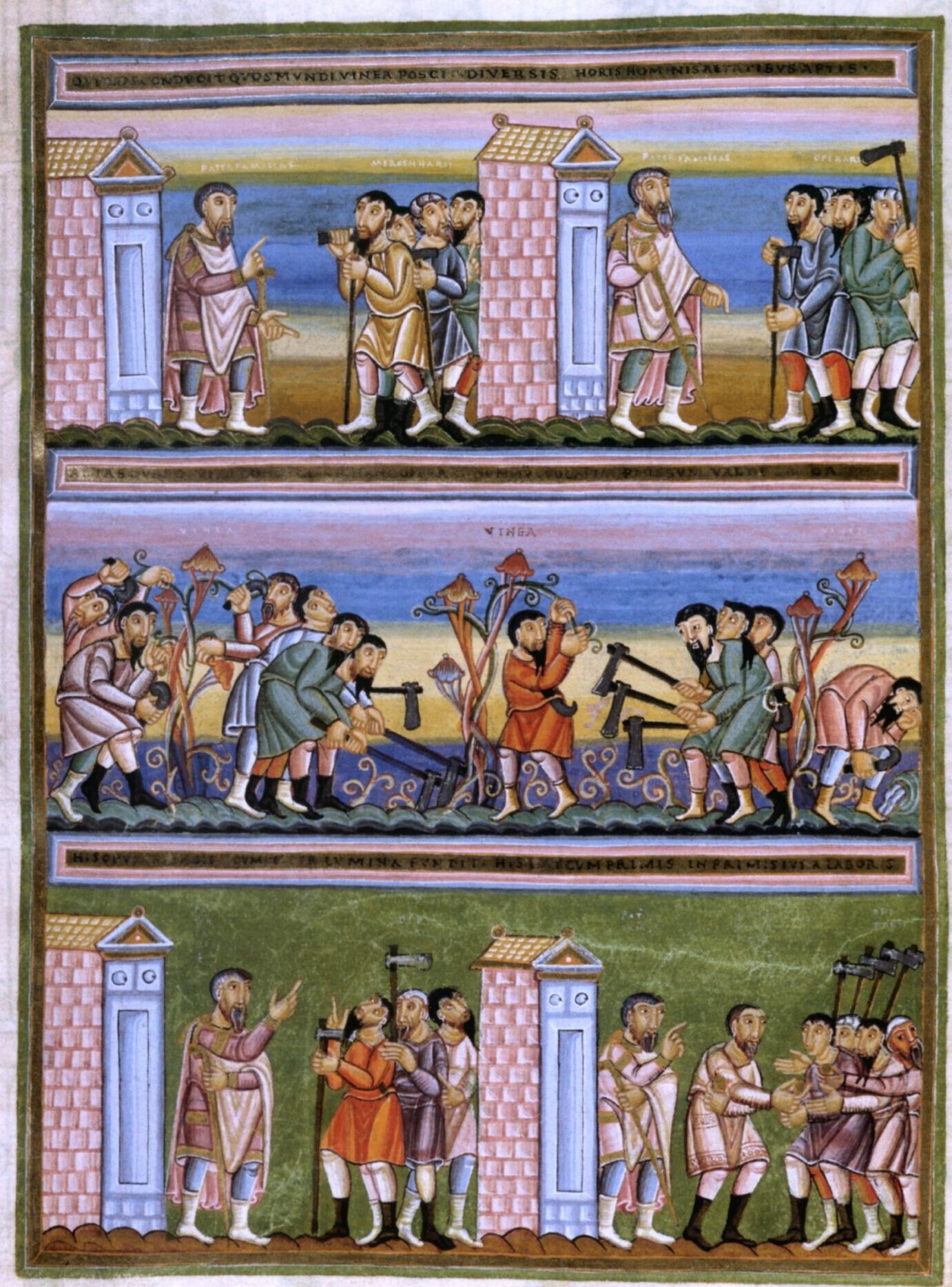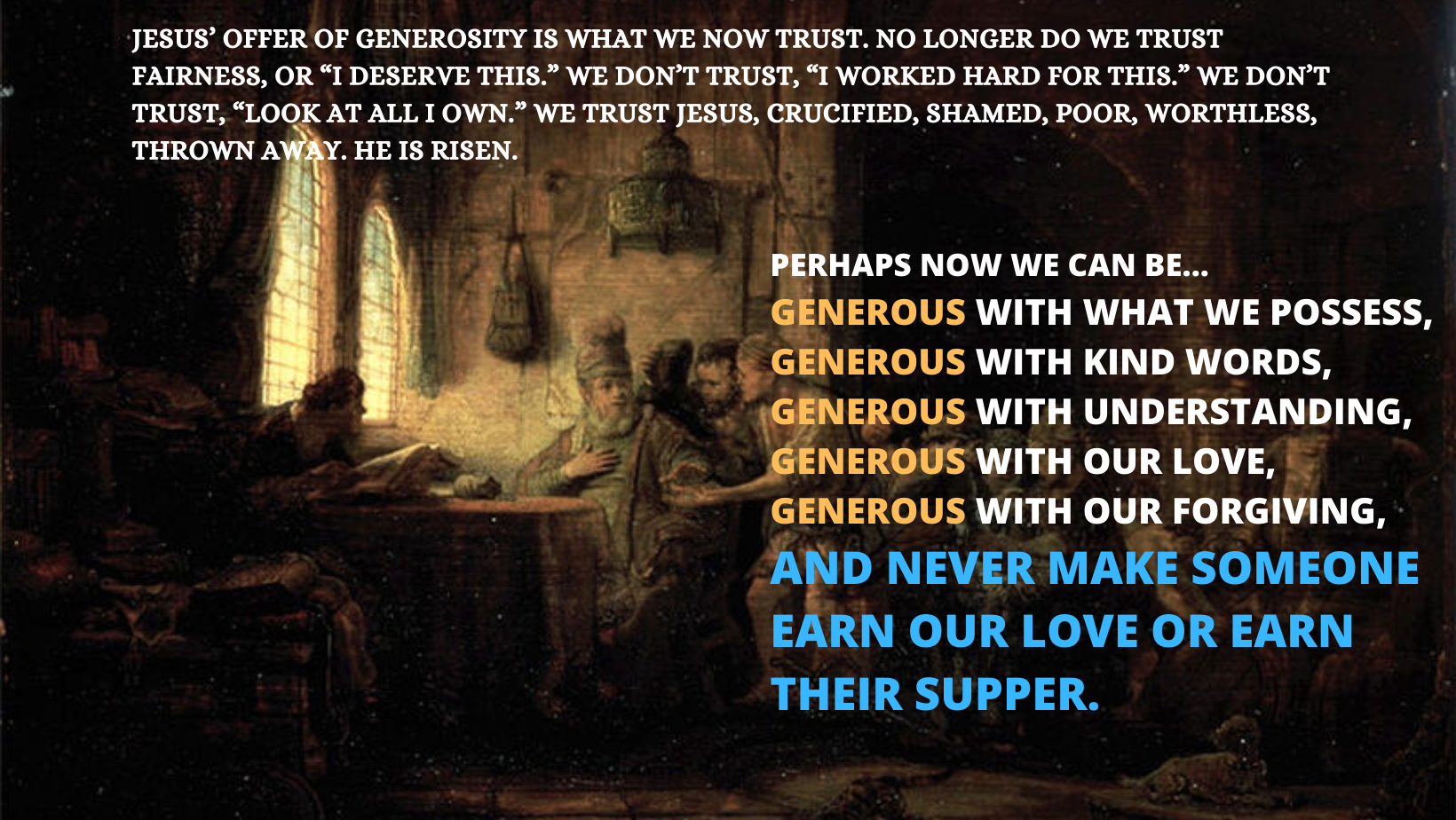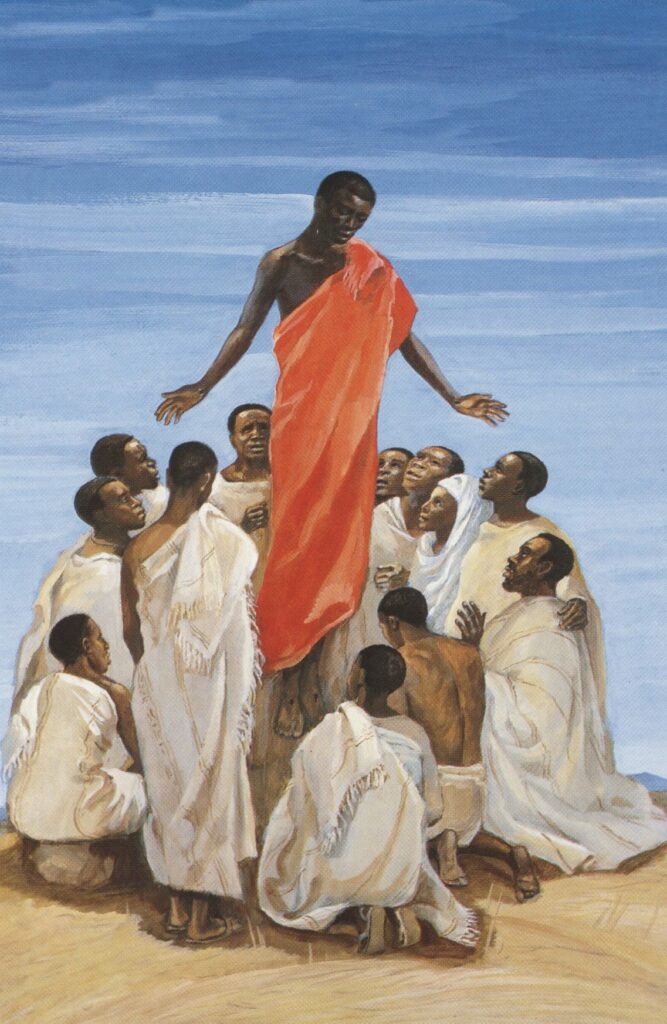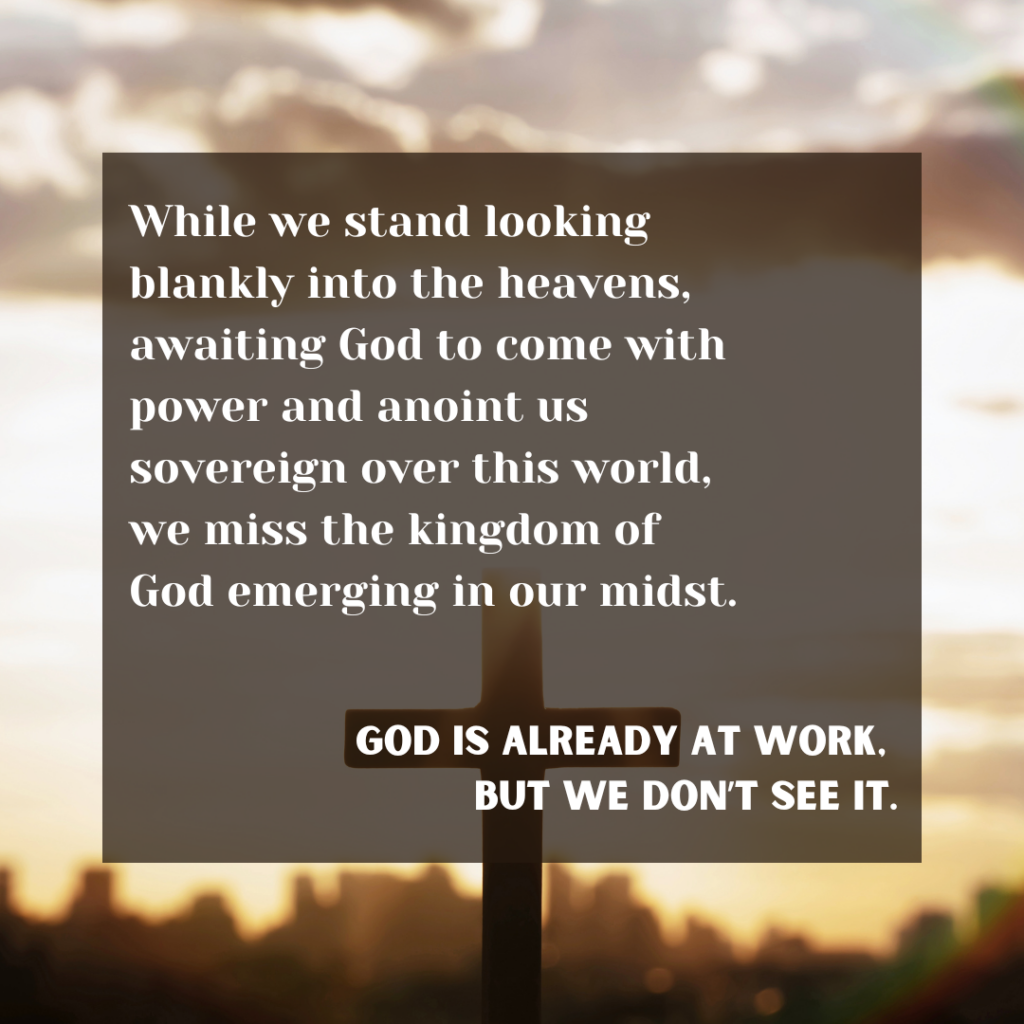Seventeenth Sunday after Pentecost, Year A
ENVIOUS OF GENEROSITY
Matthew 20:1-16
Seventeenth Sunday after Pentecost
Analysis by Timothy Hoyer
“For the kingdom of heaven is like a landowner who went out early in the morning to hire laborers for his vineyard. 2After agreeing with the laborers for the usual daily wage, he sent them into his vineyard. 3When he went out about nine o’clock, he saw others standing idle in the marketplace; 4and he said to them, ‘You also go into the vineyard, and I will pay you whatever is right.’ So they went. 5When he went out again about noon and about three o’clock, he did the same. 6And about five o’clock he went out and found others standing around; and he said to them, ‘Why are you standing here idle all day?’ 7They said to him, ‘Because no one has hired us.’ He said to them, ‘You also go into the vineyard.’ 8When evening came, the owner of the vineyard said to his manager, ‘Call the laborers and give them their pay, beginning with the last and then going to the first.’ 9When those hired about five o’clock came, each of them received the usual daily wage. 10Now when the first came, they thought they would receive more; but each of them also received the usual daily wage. 11And when they received it, they grumbled against the landowner, 12saying, ‘These last worked only one hour, and you have made them equal to us who have borne the burden of the day and the scorching heat.’ 13But he replied to one of them, ‘Friend, I am doing you no wrong; did you not agree with me for the usual daily wage? 14Take what belongs to you and go; I choose to give to this last the same as I give to you. 15Am I not allowed to do what I choose with what belongs to me? Or are you envious because I am generous?’ 16So the last will be first, and the first will be last.”

Parable of the Workers in the Vineyard – Origin Unknown From Wikimedia Commons
Jesus’ offer of generosity is what we now trust. No longer do we trust fairness, or “I deserve this.” We don’t trust, “I worked hard for this.” We don’t trust, “Look at all I own.” We trust Jesus, crucified, shamed, poor, worthless, thrown away. He is risen.
Diagnosis: It’s What You Worked For
Step 1: Initial Diagnosis (External Problem): Paid What Your Worth
Grounding: The kingdom of heaven is wherever Jesus serves his mercy and forgiveness and eternal life. And what is that like? It is like a landowner who is generous.
Tracking: “An honest day’s pay for an honest day’s work.” An employee is paid “what they are worth.” Unions threaten a strike because the companies they work for are making record profits and none of those profits are paid to the employees. It’s not fair. Generosity is not even known in the calculations of what to pay the employees.
Step 2: Advance Diagnosis (Internal Problem): Trust in How Many Hours We Worked
Grounding: A man with many possessions asked Jesus, “What good deed must I do to have eternal life?” Jesus answered that the man need do nothing, just trust Jesus. He could then be generous and sell all his possessions. “When the young man heard this word, he went away grieving, for he had many possessions.” He trusted those possessions, the symbols of all his good deeds, all his work, all his effort, all his worth. Jesus then told this story about the generous landowner to contrast faith in him with faith in fairness and doing things to earn God’s mercy.
Tracking: All we know is to put our faith in fairness. Faith in what we do, faith in our good deeds. To be offered forgiveness and eternal life is suspicious to us.
Step 3: Final Diagnosis (Eternal Problem): The Wages … Is Death
Grounding: But to pay for mercy is to take away faith. To pay for God’s love is to take away the very essence of love as a gift. It makes the relationship to be like a business. “It’s not personal, it’s business.”
Tracking: We don’t want a relationship with God where we owe God something. We don’t trust a relationship with God based on generosity. Without a relationship with God, we are cut off from what nourishes us and so we die.

The Parable of the Laborers in the Vineyard – Rembrandt (1606–1669) From Wikimedia Commons, Edited in Canva
Prognosis: It’s the Generosity of Jesus
Step 4: Initial Prognosis (Eternal Solution): The Generosity of Jesus Is Mercy
Grounding: The kingdom of heaven is the generosity of Jesus giving his life up on a cross. He gives it up, trusting God’s promise to give him a new life, to raise him up on the third day. Jesus overcomes death with his life, overcomes what he deserves with grace for us, and overcomes judgment with his forgiveness.
Crossing: Jesus offers all a place in his vineyard. He dies to make us a place there. He rises from death to make that place ours. He offers us a place in his kingdom again and again, so we are never left out. Jesus offers his generosity to those who have many possessions, to those who have few possessions, to those who think they have done a lot of good things (who worked from the early morning) and to those who have made a mess of their lives (those who worked the last hour).
Step 5: Advanced Prognosis (Internal Solution): Trust Is in Jesus’ Generosity
Grounding: All those Jesus asked to work in the vineyard went and worked. His offer of generosity can be welcomed and trusted.
Crossing: Jesus’ offer of generosity is what we now trust. No longer do we trust fairness, or “I deserve this.” We don’t trust, “I worked hard for this.” We don’t trust, “Look at all I own.” We trust Jesus, crucified, shamed, poor, worthless, thrown away. He is risen.
Step 6: Final Prognosis (External Solution): Generosity Is Given Not Worked For
Grounding: Forgiving a person for not trusting God is generosity. It is grace, the second kind of grace, the kingdom heaven kind of grace, for which not even thanks is expected or required. (The first kind of grace, God’s grace of creation, does expect and require thanks.) Forgiving a person for hurting another person is the generosity of faith in Jesus. Mercy is always generous.
Crossing: In our occupations and our daily lives, every part of our lives, work is not based on generosity. We make people work. We make our family members do chores. We threaten to take away things they like if they don’t do what they are told. We inflict fines, fees, punishments as what are deserved. We reward entertainers for doing what they love, but make factory workers earn a wage and restaurant servers earn their tips instead of paying them an honest wage. We engorge CEOs with millions of dollars stolen from all the other employees because we need to have many possessions. That is what we value and put our trust in. Generosity? From a man who died on a cross? Who can trust that? All of us who have nothing get to trust that. All of us who worked the last hour are given Jesus’ kingdom. We will not complain that the landowner is generous. Perhaps now we can be generous with what we possess, be generous with kind words, generous with understanding, generous with our love, generous with our forgiving, and never make someone earn our love or earn their supper.

